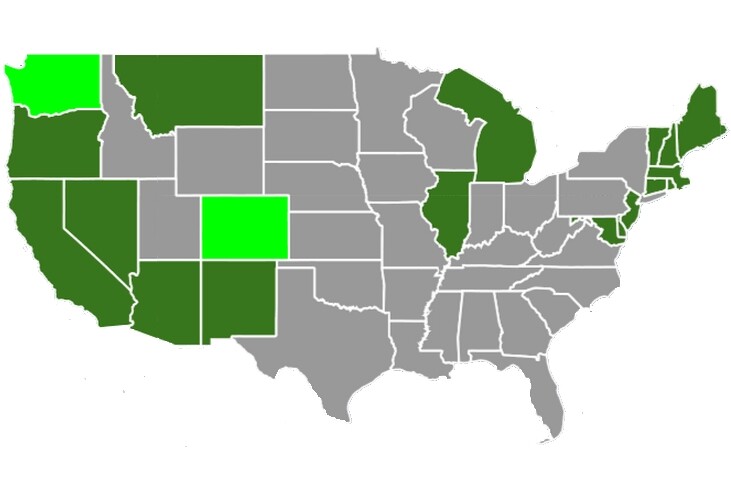The District of Columbia and 11 states -- Alaska, California, Colorado, Illinois, Maine, Massachusetts, Michigan, Nevada, Oregon, Vermont and Washington -- have adopted the most expansive laws legalizing marijuana for recreational use. Most recently, Illinois became the second most-populous state to legalize recreational marijuana after Gov. J.B. Pritzker signed a bill passed by the legislature. Vermont earlier became the first state to legalize marijuana for recreational use through the legislative process, rather than via a ballot measure. Vermont's law allows for adults age 21 and over to grow and possess small amounts of cannabis. However, it does not permit the sale of nonmedical cannabis. Some other state laws similarly decriminalized marijuana, but did not initially legalize retail sales. Also see the 2021 data.
Most other states allow for limited use of medical marijuana under certain circumstances. Some medical marijuana laws are broader than others, with types of medical conditions that allow for treatment varying from state to state. Louisiana, West Virginia and a few other states allow only for cannabis-infused products, such as oils or pills.
A number of states have also decriminalized the possession of small amounts of marijuana.
Our map shows current state laws and recently-approved ballot measures legalizing marijuana for medical or recreational purposes. States with limited medical marijuana laws, such as those only permitting use of CBD oil, are not considered to have adopted broad medical marijuana laws. Final rules for recently-passed medical marijuana laws are pending in some states.
Information is current as of June 25, 2019.








